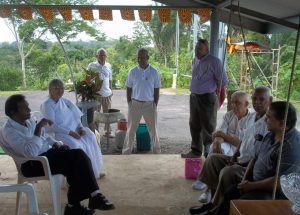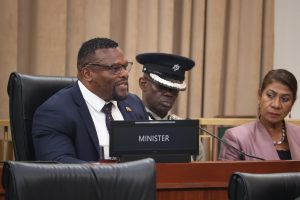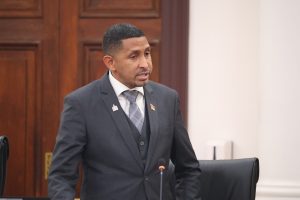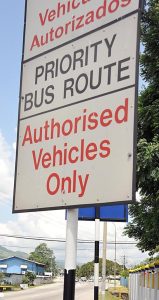By Sue-Ann Wayow
IN 2021, Trinidad and Tobago recorded the lowest road fatality figure since 1957 with 76 persons dying on the nation’s roads.
But Arrive Alive is hoping that in 2022, that number is greatly reduced by proper law enforcement, repaired roads and responsible behaviour from road users.
Already for the year, two persons have died while crossing the highway.

Arrive Alive in a statement to AZPNews.com stated that while the efforts of both the Ministry of Works and Transport and the Trinidad and Tobago Police Service kept the numbers down, “The only acceptable figure is zero because each life lost is one too many.”
Arrive Alive stated, “The government has a responsibility to ensure roads are safe and accessible for all road users, including pedestrians and cyclists. We hope that in 2022 we will see the government form a lead agency for road safety and subsequent development of a national transportation policy that also considers the use of non-motorized forms of transportation in accordance with the United Nations Global Sustainable Development Goals.
“We hope to see improved maintenance and upgrade of our road infrastructure to global standards, consistent data-driven enforcement of traffic laws with a focus on the prevention of car crashes that cause serious injuries or death.”
The organisation is also admonishing citizens to be responsible when using the roads and not speed, drink and drive and to always wear seatbelts even in the back seat.
Arrive Alive will continue its public education drive through online road safety sessions for schools, community groups and corporate Trinidad and Tobago.
It also called for drivers’ rehabilitation for those who have committed traffic offences will also continue.
“The public needs to be properly informed if they are to be expected to make the right decisions when using the roadways,” Arrive Alive stated.
Referring to the two person’s who died while crossing the highway, Arrive Alive’s president Sharon Inglefield further told AZPNews.com that other types of support were needed to prevent such behaviour.
She said, “What would make anyone cross a highway? I don’t think it’s just because of a lack of education. I don’t think it’s because they are just reckless. I think it’s part of a bigger problem. Socio-economic issues. Addiction and homelessness. A lack of hope in some cases for a better life.”
And the ones who just wanted to take a short-cut across the busy highway were taking a huge risk with their lives in doing so, Inglefield added.
The Ministry of Works and Transport is planning to repair cable barriers along the Solomon Hochoy Highway that was placed as a preventative measure to reduce the number of vehicles crossing the highway’s median.
![]()












